Our Certifications
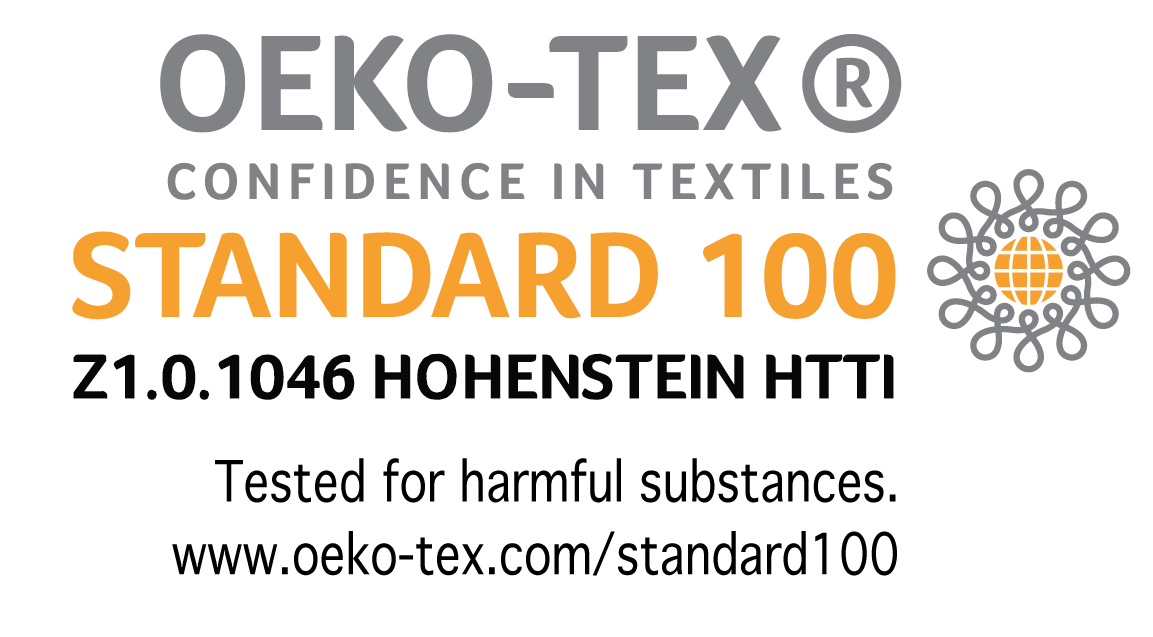
STANDARD 100 by OEKO-TEX® is an independent testing and certification system for raw, semi-finished and finished textile products at all processing levels. The testing for harmful substances includes the legally prohibited and regulated substances and healthcare parameters. The overall requirements go significantly beyond the applicable national legal standards.
OEKO-TEX® harmful substance tests are always based on the actual use of the textiles. Products with a higher degree of skin contact must meet stricter human ecological standards.
We are certified according to Standard 100 by OEKO-TEX®. This means that all parts of an item meet the required criteria, without exception. This includes not only the shell fabric but also the sewing threads, liners, prints, etc. and non-textile notions such as buttons.
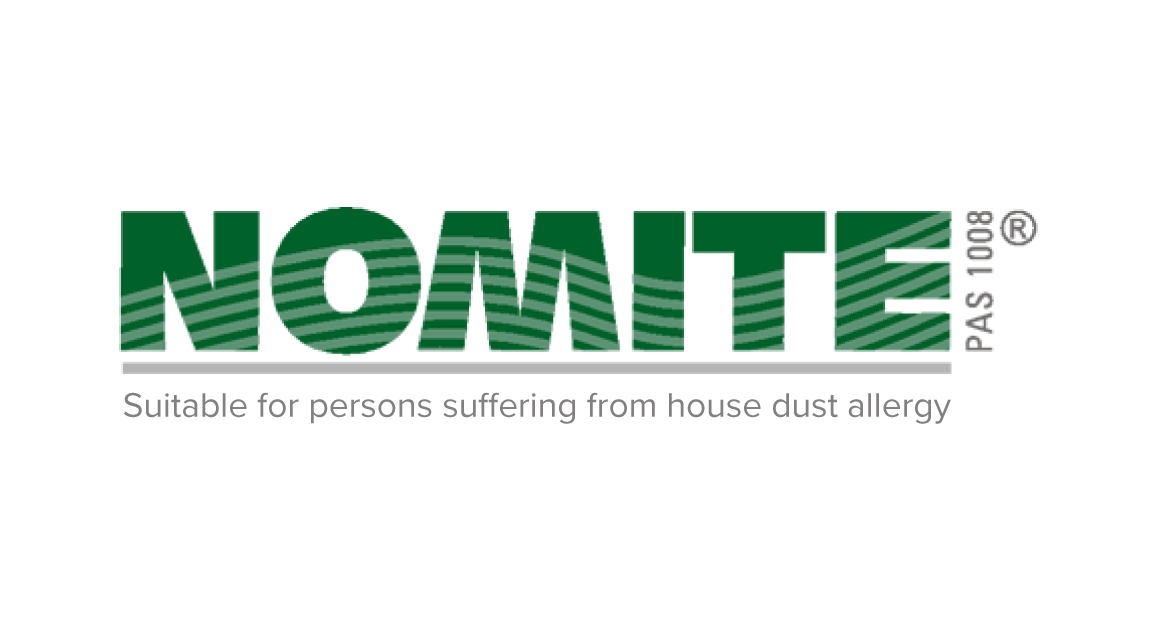
The Nomite mark is an internationally registered trademark of the European Down & Feather Association (EDFA). The Nomite mark indicates that bedding is suitable for people with house dust mite allergies.
The tight weave of down-proof fabrics prevents skin flakes and house dust mites from penetrating and acts as a protective barrier against mites. Furthermore, fluctuations in temperature occur when down and feather-filled bedding is used, which make it a very poor habitat for house dust mites. They prefer a consistent climate, such as that found in synthetic products.
All fabrics used for our down products are Nomite certified and therefore suitable for house dust mite allergy sufferers.
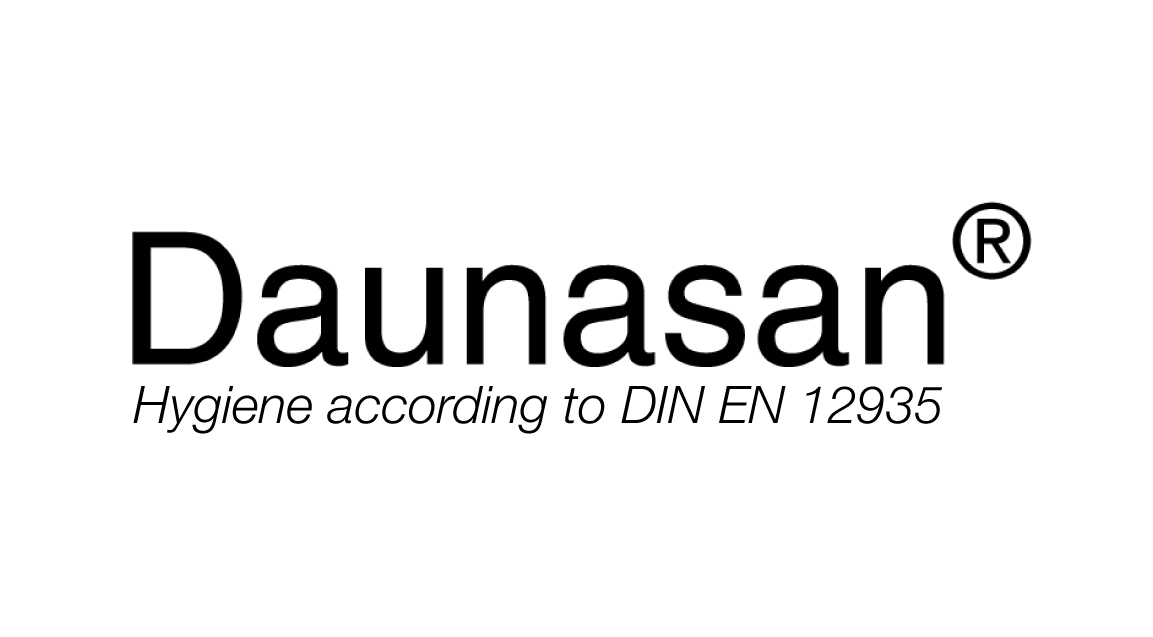
These labels indicate that hygiene and cleanliness requirements have been met in accordance with the European standard DIN EN 12935.
Only detergents are used in the processing that are safe for the environment and maintain the naturalness of the feathers and down. At the end of the product life cycle, the filling material can be easily composted.
Manufacturers using the Daunasan® mark must allow their products to be regularly tested by an independent test lab in order to ensure that hygiene and cleanliness requirements are being met.
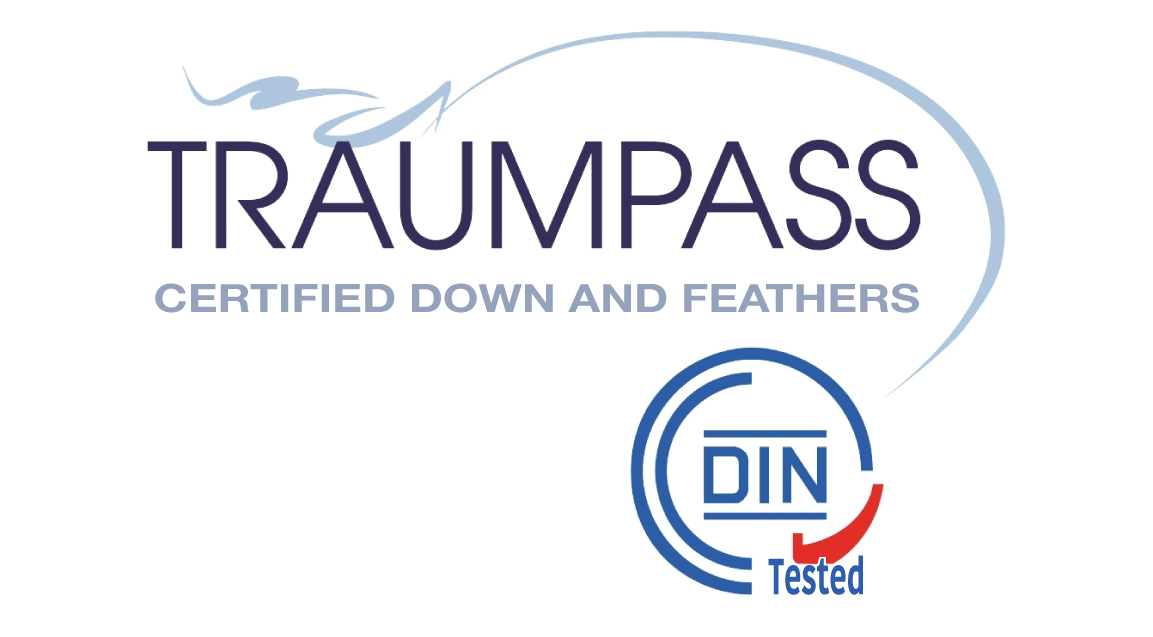
Traumpass is a quality seal for down and feather-filled bedding. Products marked with this seal must be filled with feathers and down from the two highest classes l and ll in accordance with EN 12934. In addition, all raw materials used in Traumpass products are by-products from poultry production, sourced exclusively from slaughtered animals.
The label ‘Traumpass DIN tested’, which is sewn into every product, contains an individual lot-specific testing number that allows the manufacturing company to be identified. The origin of the down and feathers used for filling can be traced back via documents such as delivery notes, invoices, and tax and import certificates, ending at the slaughterhouse from which the raw materials were sourced. This guarantees that products bearing the Traumpass seal do not contain materials from live animals. Checks to ensure that the holder of the seal follows these guidelines are carried out via regular audits of the companies by the certification organisation DINCERTCO, Berlin, Germany.
The certificate ‘Traumpass DIN tested’ is only awarded by DINCERTCO, Berlin if there is proof that the product quality and traceability conditions have been met. Only then may the label ‘Traumpass DIN tested’ be used.
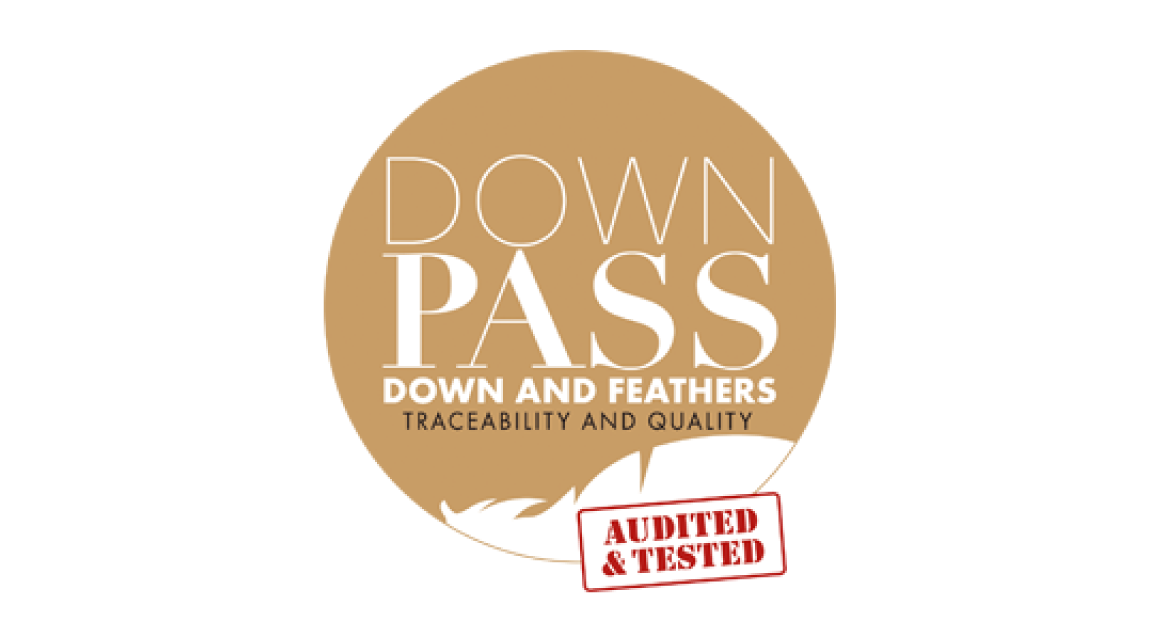
DOWNPASS 2017 is the zero-tolerance standard for the monitoring of breeding conditions and the exclusion of live plucking and force-feeding. Its aim is to globally promote the proper raising of geese and ducks kept for farming purposes. This includes the responsible sourcing of feathers and down harvested as a by-product of meat production. Traceability must be comprehensively documented in order to ensure a transparent supply chain. In addition, the composition of the filling material is inspected. The standard tools are on-site inspections throughout the supply chain, documentation reviews, plausibility checks and laboratory analyses. We are also audited.
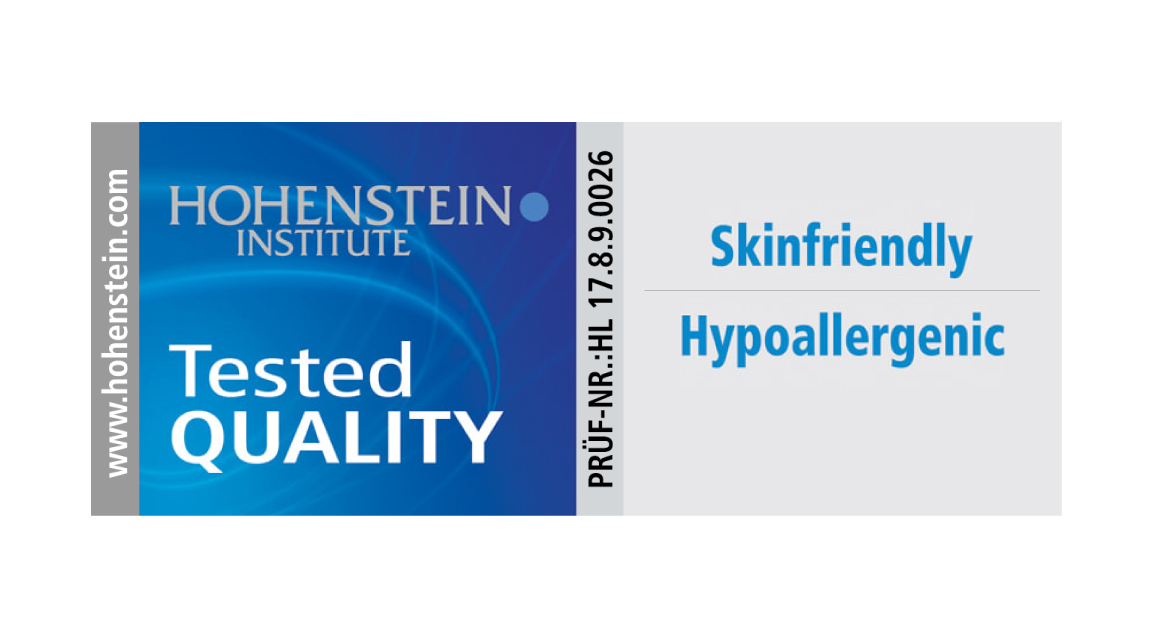
As with clothing, the physiological comfort of bedding items such as duvets, pillows and mattresses can be objectively investigated in the lab and optimised according to the results.
For example, a skin tolerability test can be conducted together with a sensitisation test. In addition, the thermal manikins ‘Charlie’ and ‘Charlene’ can be used to rate the heat insulation and moisture management of the bedding as experienced by a person who uses the duvet in real life.
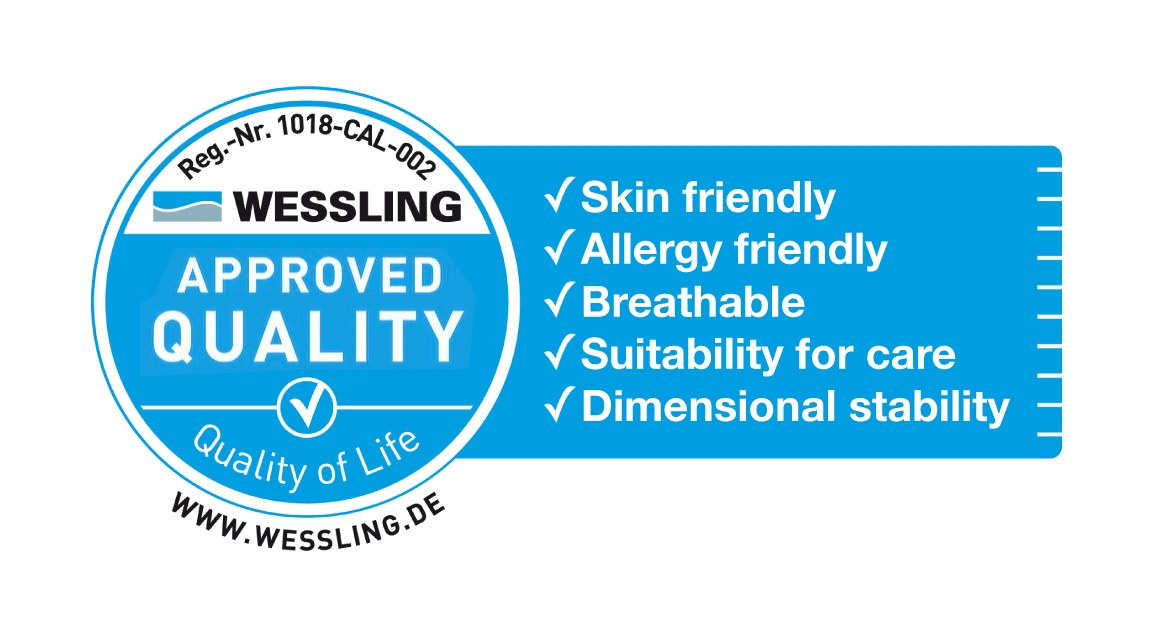
WESSLING is an international and independent analysis and testing company for quality, safety and health, and environmental protection.
Our quality seal (Schwarzwald collection) covers the following tests:
Skin tolerability:
Irritation and skin sensitisation according to DIN EN ISO 10993-10
Allergy friendliness:
Detection of disperse dyes according to DIN 54231
Breathability:
Water vapour resistance according to EN ISO 11092
Suitability for care:
Evaluation of roughening, pilling and colour change according to DIN EN ISO 6330
Dimensional stability:
Evaluation after five household wash cycles according to DIN EN ISO 5077

